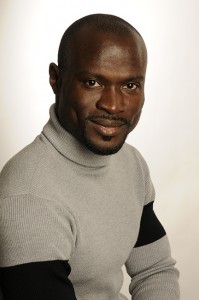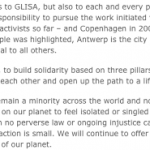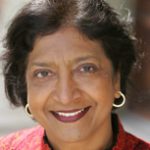Interview with Carlos Idibouo who helped to create the first gay and lesbian organization in Ivory Coast, by Jimmy Leo.
From: www.freewebs.com/african…/IVORY%20COAST%20REPORT.pdf
Carlos Idibouo (photo right) is originally from Ivory Coast where he worked in the field of HIV/AIDS prevention for several years. In July 2003, he helped to create the first gay and lesbian organization in Ivory Coast. Due to homophobic persecution and threats by authorities, Idibouo immigrated to Canada in 2006.
From Canada, Carlos Idibouo works as the association chairman of “Arc-en-Ciel” (Rainbow in English). Arc-en-Ciel is Ivory Coast’s first association dealing with sexually transmisble diseases (STD) such as HIV/AIDS and Hepatitis. They also fight against homophobia in the country.
 1. Tell me which your experiences are in your home country and how do you live your homosexuality in every day life?
1. Tell me which your experiences are in your home country and how do you live your homosexuality in every day life?
My name is Carlos Idibouo. I work as the association chairman of “Arc-en-Ciel” (Rainbow in English). Arc-en- Ciel is Ivory Coast’s first association dealing with sexually transmisble diseases (STD) such as HIV/AIDS and Hepatitis. We also fight against homophobia in Ivorian gay and lesbian milieus.
I engaged myself as activist like many others as we had to observe that homosexuals’ population was decreasing more and more and that no national programmes were set up by the government to stop that situation. We also stated that travesties were steadily been object to unjustified violences.
The time had also come for us to impose our assocation to the authorities and consequently to establish our caritative programmes. Of course, our project was not so easy to start, but after every very little step, the government has been progressively showing more and more comprehension to our associative aims.
Personally, I’ve been living openly my homosexuality because I’ve been able to get myself through in Abidjan society. I do not have serious problems with my parents because we clearly discussed once thereabout and they were very comprehensive to me – but my situation is not so usual for most homosexuals who are persecuted by parents, friends and workmates. I’ve to say, I’m mostly very satisfied with my life, excepting my professionnal career that’s not so solid.
My wish is that African homosexuals could once appreciate real civil rights. That’s the reason why I’m persistently fighting as a great activist.
2. Can you report us how homosexuals are discriminated in Ivory Coast?
Homosexuals discrimination happens in every part of social life. But these are the police forces who are the first and hardest discriminators in assaulting homosexuals. They also excercise sexual abuses on travesties. For homosexuals living in such circumstances, this discriminations have demolishing consequences on psychological life. Many homosexuals are keeping themselves hidden from society in getthoising together and having unprotected sex with each other.
Our bureau secretary, for example, has been actually suffering of violent homophobia by his parents and must escape for avoiding the worst brutality. I also have many other examples that I but can not tell hereabout till we won’t have published our new reports works.
3. Can you give more details about homophobic violences experienced by homosexuals?
These violences are moral, verbal, physic and sexual. The worst is that most violences do not happen openly in front of everyone’s eyes so that they can not be witnessed. They have also mortal consequences. Our brothers and sisters are killed in miserable conditions. Our participation at the national first journey against homophobia could make us possible to denounce these inhuman atrocities.
4. Because of poverty, homosexuals prostitute themselves, don’t they?
Yes, homosexuals escaping from home, who are delivered to themselves alone, mostly turn to prostitution. They do not find a way out because of breaking off school education. Here I but want to make clear that prostitution is an overall social problem that’s not only caused by homosexuals. It is regrettable that conversations about homosexuality within families are taboo. There also are some parents who force their homosexual children to prostitution and as long as they bring some profits home, their homosexuality is tolerated. But, if they do not earn money, they will immediatly be persecuted by their parents because of being homosexual.
5. Do you mean, human civil rights are respected in Ivory Coast?
It relatively depends of the situation. Homosexuals are not allowed to express themselves because the public does not give them any importance. In Africa, we still have very rural and familial milieus that determine the whole life curriculum and so decisions are made without the concerned person is asked for. There is a very unqualized social balance between the individium and his environment.
6. VIH infections and AIDS outbreaks are one of Ivory Coast’s biggest problems. What can ill homosexuals who don’t have any money to pay antiretrovirals, do to subsist?
This is a pertinent questtion. Because of living in clandestinity, homosexuals do not have a direct access to prevention help middles. The ones who can not afford medical treatments, are continuously mass dying every day. Our association can only report about that situation without concretly reacting because we don’t have any financement.
7. Do you know if there are some gays’ meeting points in your home country? We won’t publish places’ names.
Here in Abidjan, we have four gay pubs. In other cities, there is also gay pubs. In these bars, we can meet and express freely.
















